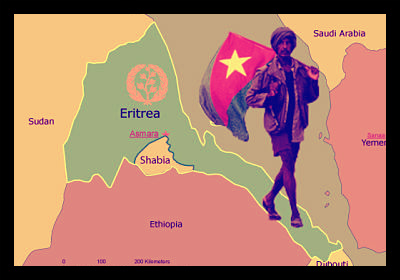Extensive Human Rights Violations in Eritrea

Resting at the horn of Africa, the nation of Eritrea lies between the developing nations of Ethiopia and Sudan. It is home to some of the world’s worst longstanding and ongoing cases of human rights atrocities. The violations have ranged from arbitrary detainment and torture, forced labor and popular oppression on multiple fronts.
Eritrea’s current system of governance is labeled as a transitional government with the People’s Front for Democracy and Justice (PFDJ) as the only political party. The PFDJ party gained incumbency during the elections of June 1993; there have been no elections since then.
President Isaias Afewerki is in control of the PFDJ party and is presently the head of state and government. Moreover, PFDJ under the Afewerki regime holds authoritative control over all national, regional and local political offices.
Although there has been extensive documentation of human rights violations in Eritrea, there has been no participation in the Universal Periodic Review, a process in which each member state of the United Nations undergoes a human rights review every four and a half years. Unfortunately, Eritrea has not allowed access for the United Nations Special Rapporteur to conduct the review.
According to a 2013 annual report carried out by Amnesty International, just a few of the many human rights violations in Eritrea include compulsory military training and forced labor for children. The Afewerki regime has also arbitrarily detained and tortured thousands of civilians. There are no opposition parties, independent media or civil society organizations, as the government does not permit them.
The degree of oppression is quite appalling and has resulted with up to 3,000 refugees on a monthly basis, most of which are children. Last year, over 300,000 refugees fled from Eritrea to neighboring countries and have placed economic burdens upon them as a result.
After intensive analysis on the human rights paradigm, Sheila Keetharuth, the U.N. Special Rapporteur on Eritrea, spoke before the United Nations General Assembly in October 2013. She urged the international community to focus their efforts on Eritrea by stating, “The current human rights picture is desperately bleak. People feel trapped in a long hopeless situation as they see no end to it to the point that they take the irreversible decision to flee, forcing them on the road to exile.”
It has been over two decades since the “transitional” Afewerki regime under the PFDJ party has come into power. With the authoritative oppression that the people of Eritrea are subject to, it has become clear they have no power to control their own circumstances. Thus, the human rights tragedy can only be addressed with international intervention.
– Jugal Patel
Sources: HRC, Amnesty USA
Photo: Ethiopian News Forum
